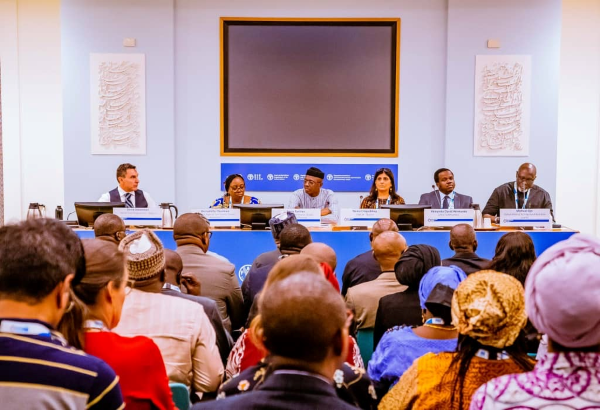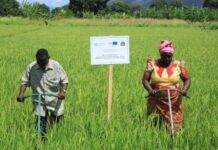By: Akinyinka Akintunde, President/CEO, AFEX Nigeria
Just one week after the President of Africa’s most populous nation, Nigeria, declared a State of emergency on food, heads of states, regional and international food system leaders gathered at the UN Food Systems Stocktaking moment (UNFSS) to discuss global food security challenges and identify pathways to transform food systems. Underlying the decision of Nigeria’s president, Bola Ahmed Tinubu, to urgently marshal resources in a fight against food insecurity in the country was record high food inflation numbers that stood at 25% as of June 2023.
The country’s food supply has been hampered by reduced input use in the preceding season exacerbated by the Russia-Ukraine crisis and leading to low productivity and yields, as well as floods which wiped out a significant portion of the country’s harvest of paddy rice. Indeed, the UNFSS further underlined the increasing complexity of food insecurity in the face of the climate crisis, ongoing conflicts and compounding economic shocks.
More and more Africans are being plunged further into food poverty and chronic hunger, with most currently living under $1 per day. According to the FAO, between 702 and 828 million people were affected by hunger in 2021 and 46 million more people faced hunger in 2022, of which about 278 million were from Africa. Similarly, impacts of climate change continue to intensify across the Sahara. The UN reports that in West and Central Africa in 2022 alone, over 2.7 million hectares of crops have been destroyed due to floods, further exacerbating food insecurity in already volatile regions.

Across East and North Africa, food security continues to be a challenge due to severe droughts and the implications of Russia pulling out on the Ukraine grain deal that would allow the export of Ukrainian agricultural goods via a safe channel through the Black Sea. This has led to inflationary pressure on the price of grains for import dependent countries, higher consumer prices, and further strained farmers to meet demands.
With such complex problems, food systems in Africa require equally sophisticated interventions. A commonly echoed thought in the sessions held at the UNFSS is the importance of collaboration across nations, institutions, and private partners to solve food security, but what does that look like in practice?
For one, Africa requires models that will adequately unlock capital and infrastructure to empower stakeholders across the agriculture value chain. Commodity exchanges can play a pivotal role in delivering these much-needed resources and fostering growth and resilience within the agricultural sector in Africa. A key piece of this puzzle is enabling collaboration with governments, producers, the finance sector, Agri-Processors and other market stakeholders, particularly because commodity exchanges are able to incentivize these market players.
On one hand, commodity exchanges foster transparent and fair pricing for farmers and processors, creating access to markets that allow negotiation of equitable contracts, increase production and manufacturing, while establishing pathways to secure food supply.
Commodity exchange models similarly help governments stabilize food prices, mitigate price fluctuations, and support the development of exports which inevitably enhances forex earnings. In addition, commodity models are built on gathering market prices and historicals which could serve as data banks to influence policy decisions and allow for better targeted interventions for the agriculture sector.
A large part of making food systems work is unlocking capital for the sector. Commodity exchanges can integrate the capital market and other capital providers into the sector in the quest for food security. Access to inputs, which boosts productivity, remains agriculture’s largest hurdle, with a financing gap of over $200 billion. Infusion of capital to the agriculture sector stimulates innovation and increases opportunities for market participation.
With the FAO predicting that more than 660 million more people would face food insecurity by 2030, platforms such as the UNFSS are important rallying points to discuss innovative approaches to food system transformation. Collaboration as a strong theme from this year’s stock taking moments is hugely served by the commodities exchange model. Through the focus of commodities exchanges on creating efficient and transparent market systems, synergies among multiple stakeholders from public to private can be explored and leveraged paving the way for a more food-secure and sustainable Africa.









[…] Source link […]
Comments are closed.